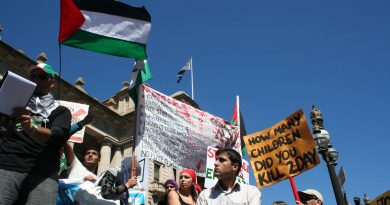Foreign Special Forces & Organized Crime in Ecuador
Anthony Samaniego
Staff Writer
Ecuador, which is sandwiched between the two top cocaine producers in the world, Colombia and Peru, has seen illicit economies and drug related violence grow since 2018, with homicide rates spiking in 2021. By 2023, Ecuador recorded the highest homicide rates in the Western Hemisphere at about 45 homicides per every 100,000 citizens. In January 2024, the state television network TC Television was assaulted by 13 armed men belonging to the Los Tiguerones drug gang, reports Ecuadorian news outlet Primicias. After the assault, President Daniel Noboa declared an internal-armed conflict against all criminal groups operating in Ecuador and declared them terrorists. Since President Noboa has deployed Ecuador’s armed forces to the streets to combat all criminal groups and illicit economies, there has been a 17 percent decrease in the homicide rates. According to the 2024 Homicide Round-Up published by InSight Crime, Ecuador still records the highest rates of homicide in Latin America at 38.8 per every 100,000 citizens surpassing Colombia at 25.4 homicides, Mexico at 19.3 homicides, and Venezuela at 26.2 homicides.
In the year sincePresident Noboa has implemented his Plan Fenix to combat organized crime, Plan Fenix consists of deploying the armed forces to the streets and the prisons and approved extradition for high level criminal targets. Despite homicides dropping, kidnappings and extortions have risen in Ecuador with 1,543 cases of kidnappings reported by authorities between January and March of 2023, reports Ecuavisa. As another strategy to combat drug gangs linked to transnational drug cartels, President Noboa asked his foreign ministry to request temporary, on the ground presence of special forces from “allied nations” to assist Ecuadorian law enforcement officials and soldiers with combating criminal groups, says The Associated Press. The President did not specify which nations he would request foreign military assistance from and urged the opposition-controlled National Assembly to approve his initiative.
Receiving foreign military assistance would certainly add manpower to the forces combating drug gangs in Ecuador and add a more consistent supply of equipment to disrupt illicit economies. Though neither the militarization of Ecuador nor the presence of foreign special forces can address one of the main obstacles to combating drug related violence which is the inefficiency, lack of resources and corruption in the country’s judicial branch. The country’s drug gangs not only kill and extort regular citizens but additionally kill judges and prosecutors and infiltrate government institutions which is not directly addressed by the deployment of the armed forces. Ecuador’s Attorney General’s Office relies on police investigators, prosecutors and judges for criminal investigations rather than having their own investigative body, reports Americas Quarterly. Relying on police investigators to carry out criminal investigations makes it inefficient for the Attorney General’s office to do their jobs when there are consistent reports of law enforcement officials engaged in corruption with organized crime groups. Prosecutors, judges and security experts report lacking security measures and tools such as bulletproof vehicles when traveling between courtrooms and offices, therefore it is unsafe and inefficient to do their job. Last month a journalist from Americas Quarterly reported being able to walk directly to a high-ranking prosecutor’s office who takes charge of organized crime investigations and other sensitive cases without being stopped or questioned.
President Noboa’s “Plan Fenix” is primarily focused on deploying military troops to the streets and the prison to assist police officers as well as prison guards in combating drug gangs and arresting any individual committing a crime on the spot. The presence of multi-national special forces would only continue to carry out the actions already being executed in the militarization of the country while not addressing the lack of funding, resources and materials in the country’s vulnerable judicial system and their ability to implement appropriate sentencing. Officials from the Attorney General’s Office also report having 600 vacant positions due to lack of funding.
In Haiti, which has seen a similar rising pattern in criminal violence to Ecuador, a Kenyan-led Multinational Security Support Mission has been deployed for more than six months. This is the second time since the early 2000s a multi-national force has been deployed to Haiti to combat gang violence. So far, neither the Kenyan,Haitian, or soldiers from other nations that pledged to support Haiti have been able to dislodge gang presence from neighborhoods. The Kenyan-led multinational force has struggled with lack of sufficient funding, communication with Haitian police and lack of clarity about the extent of their operations. Since President Noboa has not specified which countries he seeks foreign military presence from, the same obstacles present for multinational forces in Haiti exist for Ecuador if the country decides to receive foreign special forces.
Image courtesy of Getty Images.


